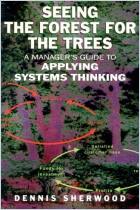Melden Sie sich bei getAbstract an, um die Zusammenfassung zu erhalten.

Melden Sie sich bei getAbstract an, um die Zusammenfassung zu erhalten.
Russell L. Ackoff
Ackoff's Best
His Classic Writings on Management
Wiley, 1999
Was ist drin?
The wisdom of architect-planner-professor-author Russell Lincoln Ackoff emerges in this collection of ruminations, packed with insight, experience, and a healthy dollop of irreverence.
Recommendation
This book collects provocative, insightful essays by Russell L. Ackoff, architect turned city planner turned behavioral scientist turned professor. True to his convictions about systems thinking, his pieces form a coherent whole. Like a successful system, the whole of this book is greater than the sum of its parts. And what parts: the roots of systems thinking; a properly irreverent approach to bureaucracy; the role of planning; a standard for mission statements; effective advertising advice. Ackoff is a voice in the wilderness as he fondly remembers his bureaucracy-bucking, folly-filled, smart-as-heck past. Although this book tends to veer toward the academic, managers and students of management will find it useful. getAbstract recommends it to anyone seeking insight on creativity, education, and science. Tear into this book a little at a time; you won’t be disappointed.
Summary
About the Author
Russell L. Ackoff , Ph.D, founded and chaired INTERACT, a Philadelphia-based educational consulting firm. He has been the Anheuser-Busch Professor Emeritus of Management Science at the Wharton School of Business, University of Pennsylvania, since 1986. He has written many articles and books, including Management in Small Doses and The Art of Problem Solving.




















Comment on this summary